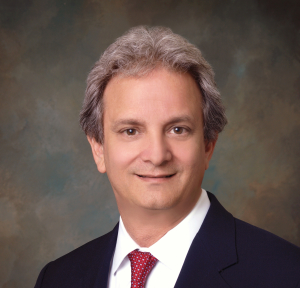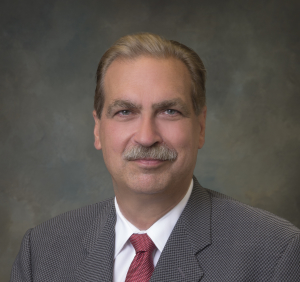Kelly Services ranks as one of the world’s largest staffing firms, and longtime President and CEO Carl Camden announced he would step down effective May 10. The company tapped George Corona to take on the roles; Corona had served as executive VP and COO.
Camden was a finalist for the role of president at Oakland University in Rochester, Mich.
We spoke with Camden and Corona about the industry, challenges and their future plans.
Carl Camden
What are two or three of the biggest challenges faced over the years?
Carl Camden: I think, for the industry and for Kelly, the shift that took place first off, in the mid-90s, where customers started consolidating spend at the procurement level — rather than with each individual being able to make their own decision as to which staffing firm they were going to work with — changed the industry in a significant way. When I got here, our biggest marketing expense was sending shamrocks. We used to send a shamrock out to every person who ordered a temporary from Kelly. As all of that business became consolidated … that was a pretty significant change, for Kelly and for the industry.
The second change, especially, again, with larger customers, was a move that went away from single-country contracts to multi-country contracts — and at the same time, a move away from single talent-category contracts, to multi-talent category contracts. That’s still underway, but it has been a significant change. It has taken place during the second decade I was here.
And then, the change that’s most currently underway, if I’ll just jump to a third one, is a shift away from just being responsible for temporary staffing, to being responsible for talent supply chains in all forms of talent.
What do you predict the industry will look like over the next five years?
Camden: It depends what the industry chooses to do or not do. If we adopt the talent supply chain philosophy, we stand at the brink of becoming one of the most critical service providers to companies around the world.
I talk about visions that I have. I still dream of the day when a CEO is hired, and they ask her who her key advisors are, and she says, “My investment banker is Goldman Sachs, and my talent adviser is Kelly Services.” I want the day that the company’s talent advisors are mentioned in the same breath as their key accounting partner, investment banker, marketing firm — a talent supply chain firm should be right there with them.
If you could go back and change one thing, is there anything that you would change?
Camden: I think the industry could have shifted earlier to being an advocate for all forms of free agent talent or independent talent. I think we stuck to the idea that we’re just the temporary staffing industry. We didn’t recognize that we were at the very cutting edge, the very early forerunners of what’s become the “new world of work.” Now everybody’s talking about the new world of work and I’m attending conferences every two to four weeks on it, but Kelly and the other firms invented the new world of work a long time ago.
We were slow to move out of our home base. We were uncomfortable. The industry didn’t talk much about all the other categories of independent work. So, for me, personally, I would like to have been more aware and more enlightened earlier than I was to have foreshadowed that change, and that I argued for that change in our industry more loudly and more vociferously.
What are you going to do next?
Camden: At a generic level, from the moment I left academia, back in 1988, I always intended to return to public service, and that was what I would do. That round trip has taken a tad longer than I thought it would. When I left academia, I took a year’s leave of absence and thought I would be done with what I had to do in that year and return. Almost 30 years later, I plan to go back to public service — if not Oakland University, then other places around education and government, and I expect that one of those two places will be my last gig.
 George Corona
George Corona
What is the biggest opportunity for Kelly?
Corona: When I think about that question, I think about some significant assets that Kelly has. To me, those are our brand, our people and our customer relationships. As the industry continues to face talent shortages, and as Carl was talking about, the change in buying habits that customers have when they are looking to our industry to provide them with industry solutions, I think Kelly has a unique opportunity to use the core assets to meet the demands that customers are having for better solutions.
And when you think about that opportunity to do more with customers, and deepen our relationships with them, it will make the relationships more lasting, and as we diversify to other solutions it will drive growth at Kelly. That’s what we’ve been thinking about for a while now. It’s figuring out how to take advantage of that, as customers are changing, and working and investing in capturing the growth that’s out there. So, I think there are some unique opportunities as the industry changes.
What are going to be your biggest challenges as you take on this role?
Corona: It’s not going to be easy to follow Carl in this role. He has really made himself an industry legend, and at one of your last events, he was recognized for that [Editor’s note: Camden was inducted into the Staffing 100 Hall of Fame at the Staffing Industry Executive Forum]. He’s been at the forefront of advocating for our industry — the rights of our employees to be recognized for the value that they provide to the economy, ensuring that they are afforded proper coverage in the social safety net.
He’s also been a huge, extraordinary visionary in the industry. Some of the things he’s talked about are really starting to come to fruition, like supply chain principles. That’s not going to be an easy thing inside or outside to follow, so that’s going to be a big challenge. But I think, now that those visions are starting to become reality, things like the supply chain and the gig economy, the challenge we have at Kelly is going to be to really embrace those changes, and focus our employees on growing.
But I want to make sure that they don’t lose sight of what I think makes the company great, and that’s been our focus on innovation, our focus on customer service, and continuing our “do the right thing” culture. But with all that said, I embrace the challenge.
What is the biggest threat you see to Kelly?
Corona: Well, if you think about it, it’s more a threat to the industry, which Kelly is a part of. When you look at what’s going on out there, technological advances in the industry coupled with customers continuing to drive to focus on their core business, this really places a premium on anybody in this industry for innovation and focus.
I think the days where we used to be in the era where companies would come to us for a one-stop shop for talent, those days are really gone. And to survive, we’re going to have to be able to innovate, and solve customers’ problems, but also to create new streams of growth. I think anybody in this industry is going to have to be open to forming new partnerships to solve customers’ problems, and to be able to do this fast, because none of us is going to be able to meet all the changing needs that customers have.
You have to really look to neutralize the threat from technology that is changing buyer behaviors. To me, it’s going to be operating with a culture of innovation and speed. We have a really long history of innovation in the company — things like outsource solutions and Kelly education staffing and many of the things that we innovated in the industry. Now, the challenge for us is to pick up speed and continue the innovation process.
Where do you think the industry will be in the next five years?
Corona: That’s an interesting question because it involves the tremendous change that we’re seeing right now. I think the biggest thing is going to be that technological advances are changing the way that we engage with talent, the way that we connect talent to work. It’s going to look a lot different in five years. Coupled with that, the advance in technology is actually even going to change the kinds of talent that are going to be in demand in the economy, as we move forward.
Things like robotic process automation and machine learning; they’re eliminating entire types of jobs. What’s going to happen is they’re going to create entirely new jobs that we can’t even imagine right now. An example is before the iPhone was created in 2008, there was no such thing as an app developer. There are now 750,000 App Developers in the US alone. In 2007, we didn’t even know that was going to be a type of work.
So, I think over the next five years, you’re going to see technology driving similar kinds of changes. The other thing I think is happening very rapidly is we’re beginning to see work style changes, and they’re already starting to happen, but they’re not necessarily fully accepted, either with our customers or within the regulatory environment of government. You’re starting to see things like the rise of independent contractors, people working at home, more work getting done by project solutions, gig workers. Right now, we see the beginnings of all of those things being used. In five years, it’s going to be just accepted that there are a variety of different work styles that are going to be out there, to help customers with their needs. Companies in our industry are going to need to be able to provide all those different types of work.
And unfortunately, I think that the place it’s going to be most behind is going to be in government policy and making sure that people working in different work styles are all part of the economic system and the social safety net. Unfortunately, I think in five years, that’s probably not yet going to be done.
But I do think that the core of our industry is still going to be about making connections with talent. It’s just going to look a lot different. As talent shortages grow, the thing we’re going to have to come to grips with is talent is going to have more say than they do right now. They’re going to have the say in how they work, where they work, when they work, so it’s going to become a talent-driven market.
What are you most excited about personally in the workforce solutions ecosystem?
Corona: Well, for me, I think change in and of itself represents great opportunity. All of the change in the industry — customers changing the way they buy, talent changing the way that they work, technology changing the way that we connect — there are all kinds of opportunities that are going to exist out there. There are going to be new business models that are going to emerge. There are going to be new services that are going to need to be created, and when you have all that, it presents new growth opportunities.
When all you’re doing is trying to do the same thing over and over, we’re all fighting for the same turf, and it’s hard to grow. If you have a good innovative culture. You’re going to be able to find new ways and new opportunities to grow. The other thing that I’m very excited about is the fact that these changes will provide our employees opportunities for their own personal growth, and be able to build their own careers.
I think the future, even though there’s going to be a lot of change and lot of people say that automation is going to ruin the industry, I just don’t see it. I see automation bringing a new level of opportunity and excitement to us.








